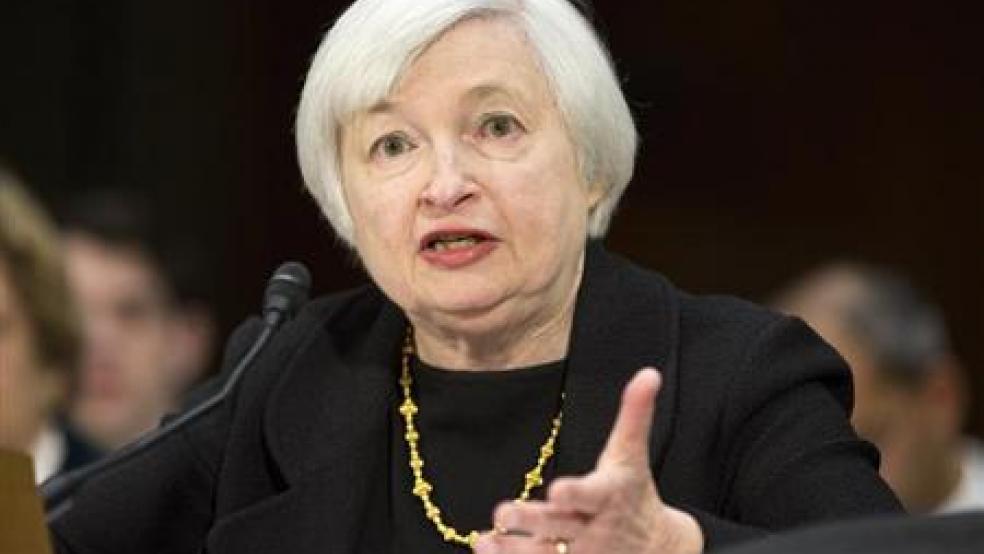The Federal Reserve kept interest rates unchanged on Wednesday and said it was "closely monitoring" global economic and financial developments, but maintained an otherwise upbeat view of the U.S. economy.
The central bank's decision was widely expected after a month-long plunge in U.S. and world equities raised concerns that an abrupt global slowdown could act as a drag on U.S. economic growth.
Related: How the Fed Could Ruin Wall Street’s Rebound This Week
"The committee is closely monitoring global economic and financial developments and is assessing their implications for the labor market and inflation," the Fed's policy-setting committee said in a statement that diminished the chances of a rate hike at its next meeting in March.
The Fed removed a previous reference from its statement to the risks of the economic outlook being balanced. Instead, the central bank said it was weighing how the global economy and financial markets could affect the outlook.
Fed policymakers did not give updated forecasts on the path of monetary policy on Wednesday but said they expected the labor market would continue to strengthen and the economy would expand even with "gradual adjustments in the stance of monetary policy."
The Fed last month raised its key overnight lending rate by a quarter point to a range of 0.25 percent to 0.50 percent, a sign the economy had largely recovered from the 2007-2009 financial crisis and was shrugging off economic weakness in China, Japan and Europe.
Related: Here’s What Will Get Stocks Back on Track in 2016
Ahead of the decision on Wednesday, investors were betting on one quarter-point rate increase in 2016 rather than the four that Fed policymakers signaled in their December economic forecasts.
The Fed said on Wednesday that a range of recent labor market indicators, including "strong" job gains, pointed to some additional firming of the job market.
U.S. exports took a hit last year, largely due to the impact of a strong dollar, but consumer spending accelerated and overall employment surged by 292,000 jobs in December.
Oil prices have also plummeted this year, which could keep U.S. inflation below the Fed's 2 percent target for longer, but a recent uptick in the consumer price index outside of food and energy could point to a stronger medium-term inflation outlook.
The Fed said it still expects the downward inflationary pressure from lower energy and import prices to prove temporary.
Investors had seen almost no chance of a January hike and were betting on just two increases in 2016 before shares in the Standard & Poor's 500 index fell about 8 percent in the first three weeks of the year.
Fed policymakers will be able to sift through the January and February employment reports before their next policy meeting in March.
All the Fed policymakers participated in the two-day meeting in person, a central bank spokesman said.




